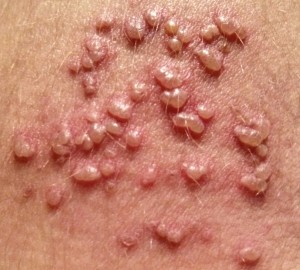Herpes is a type of viral infection that is sexually transmitted. For long years, the medical fraternity has been searching for a cure to this kind of illness. Unfortunately, nothing has been established yet up to these days. But there are many recommendations on how an afflicted individual can treat and manage the condition.
What are the symptoms of herpes?
 In most cases, the infected individuals are not aware that they have the virus until after a few weeks when the signs and symptoms are already visible. Some people don’t even know until they have finally heard what their doctors have to say.
In most cases, the infected individuals are not aware that they have the virus until after a few weeks when the signs and symptoms are already visible. Some people don’t even know until they have finally heard what their doctors have to say.
Normally, you will start seeing the symptoms of herpes two weeks after you have contracted the virus. You will notice that your lesions take forever to heal, and flu-like symptoms will begin to develop. The best way for you to determine if the signs are related to herpes is to consult a doctor. He or she will conduct several tests that include blood tests, viral culture, and serological tests.
Early symptoms
The symptoms of herpes may vary from one person to another. Some do not even have a single sign while others are experiencing severe symptoms. The early signs of herpes would include lower back pain, flu-like symptoms, burning sensation in the genitals, pain when urinating, and small red bumps that develop into blisters which can cause great discomfort.
Other symptoms
As time passes by, a person who is infected with the herpes virus may also experience severe muscle pain, headache, swollen lymph glands, fever, discharge from the penis or vagina, infection of the urethra, and painful blisters.
What are the possible treatments for herpes?
When it comes to detecting sexually transmitted diseases like herpes, you should not depend on self-diagnosis. The best way would still be to have a health care professional check you and do some tests. This way, you will be provided with the right information in terms of treating your condition. Some medications will help manage the attack and heal the blisters. If you are provided with the proper treatment, you can also minimize the duration and severity of the outbreaks.
There are many simple preventative techniques that you can do such as strengthening your immune system, washing your hands regularly, getting enough rest, and watching the foods that you eat.

